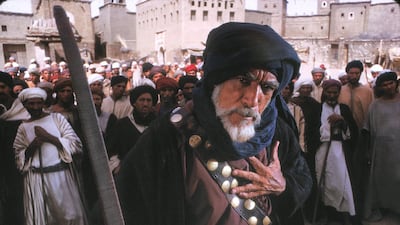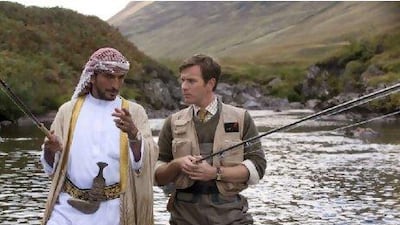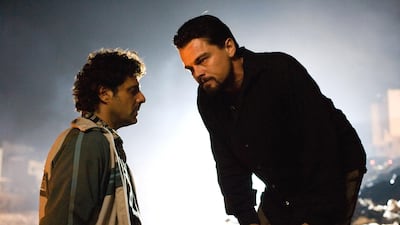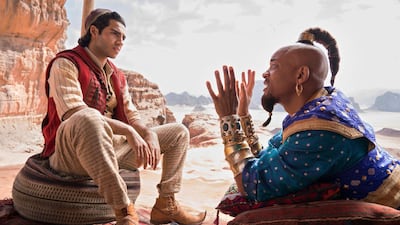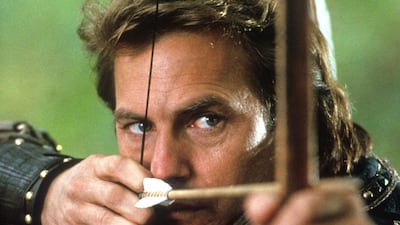Representations of Islam in Hollywood and European cinema have been problematic for decades.
That said, despite the relatively small number of major productions with positive portrayals of the faith, the ones that do get it right often result in films brimming with authenticity.
Sometimes these truthful depictions are done subtly through a character’s actions, while in other cases, Islam is the main theme of the plot and it’s handled with dignity and accuracy.
From big-budget adventures and historical epics to independent productions, here are 10 films that treat the faith with respect.
1. ‘The Message’ (1976)
At the time of its release, this epic was celebrated – much like 2018's Black Panther, which was praised for its diversity – by many Muslims who had struggled to find any faithful representations on the big screen.
Directed by Syrian-American filmmaker Moustapha Akkad and starring Anthony Quinn, The Message chronicles the life of the Prophet Mohammed through the eyes of uncle Hamza ibn Abdul Muttalib (Quinn).
Akkad took great pains to ensure the Prophet Mohammed was portrayed in accordance with Islamic tenets. This meant the prophet's face was not depicted, nor his voice. Instead, scenes were filmed from his point of view and his utterances were repeated by Hamza and supporting characters.
2. ‘Lion of the Desert’ (1981)
Quinn and Akkad teamed up once again for a biopic of Omar Al Mukhtar, a Libyan teacher who picked up arms to resist Italian troops occupying his homeland at the start of the Second World War.
Similar to The Message, the film is full of nuanced portrayals of Muslim practices, as well as Arab and North African cultural traditions.
3. ‘Malcolm X’ (1992)
Director Spike Lee's searing biopic of African-American activist Malcolm X was crowned by an astonishing lead performance by Denzel Washington.
Speaking at Dubai's On.DXB festival in 2019, Lee recalled how he and Washington worked hard to ensure the film's authenticity and accuracy. This included gaining rare access to shoot scenes in Makkah, and Washington studied the Quran in depth.
"There was no pork on his fork and no alcohol," Lee said of Washington's preparations. "He learnt how to pray in Arabic and he studied the Quran and that's because he is the most intelligent actor on this Earth, in my opinion."
4. ‘Robin Hood: Prince of Thieves’ (1991)
It's for a pious Muslim character to play a sidekick in a big-budget action film. But that's the case in this 12th-century-set blockbuster starring Kevin Costner as Robin Hood.
Joining him on his adventures is Azeem, a softly spoken Moorish warrior (Morgan Freeman) whose life and demeanour is defined by his faith.
In a quiet scene where Azeem is asked by a child why his skin was black, he smiles and replies “because Allah loves wondrous variety".
5. ‘The 13th Warrior’ (1999)
In this fictional account of an Arab Muslim traveller hired by Vikings to defend their homeland from an encroaching enemy, Antonio Banderas's turn as the real-life 10th-century personality Ahmad ibn Fadlan is dignified and perceptive.
He frequently repeats the Muslim prayer "there is no God but Allah and Mohammed is His prophet" and in another scene he teaches a Viking how to "draw" by scrawling that same prayer on the sand.
In the moments leading to the final battle, Banderas’s character prostrates to the ground in order to summon strength for the challenge ahead.
6. ‘Monsieur Ibrahim’ (2003)
This affecting French drama, originally titledMonsieur Ibrahim and the Flowers of the Quran, is set in Paris in the 1960s and follows the unlikely friendship between Momo (Pierre Boulanger), a young French-Jewish boy from a broken home, and Ibrahim (Omar Sharif), an elderly Turkish man who runs the neighbourhood grocery store.
Finding solace in Ibrahim's presence, Momo helps out at the shop and eventually travels with him to Turkey learn about his faith and culture.
7. ‘Kingdom of Heaven’ (2005)
This is an epic film that brought a much-needed different take on the Crusades. Under the lens of director Ridley Scott, the series of battles was not portrayed as simply a clash of civilisations, but one where both sides, despite their differences, showed respect and honour to each other's faith and traditions.
A wonderful scene is when Muslim warrior Saladin, in a commanding performance by Syrian actor Ghassan Massoud, strolls through the debris of a devastated church to find a cross on the floor.
He picks it up and sets it respectfully on an altar.
8. ‘Body of Lies’ (2008)
This taut spy drama, set in the Middle East and starring Leonardo DiCaprio, was praised for its authentic settings, cast and appreciation for the cultural nuances of the Arab world.
A key part of the plot is the relationship between CIA officer Roger (DiCaprio) and Jordanian nurse Aisha, played by Iranian actress Golshifteh Farahani.
The budding romance is shown in a way that pays respect to Islamic and Arab traditions – both characters never exchange physical affection and are often standing or sitting apart.
In one key exchange, Aisha chides Roger when his actions verge on vulgar, saying: "We [need] to have a conversation about the proper way to have a conversation."
9. ‘Salmon Fishing in the Yemen’ (2011)
In this charming romantic drama about British sea expert Alfred (Ewan McGregor) travelling to Yemen to hunt for wild salmon, the spirituality that abounds in the country is exemplified by local, Sheikh Muhammed, played by Egyptian actor Amr Waked.
As well as being a fishing enthusiast, it is through the sheikh’s actions and wisdom that Alfred gets a keener insight into Islam and the region as a whole.
10. ‘Aladdin’ (2019)
Muslim and Arab audiences would be forgiven for approaching the live-action remake of the 1992 animated film with a certain degree of trepidation. Despite its charm and wit, the first film was replete with problematic and off-colour stereotypes of the region.
The new version went some some way to address this by presenting the fictional kingdom of Agrabah in a respectful light.
Where in the animated film it was described as "barbaric, but hey, it's home", the new version paints it as a proud land full of culture and glittering minarets.
